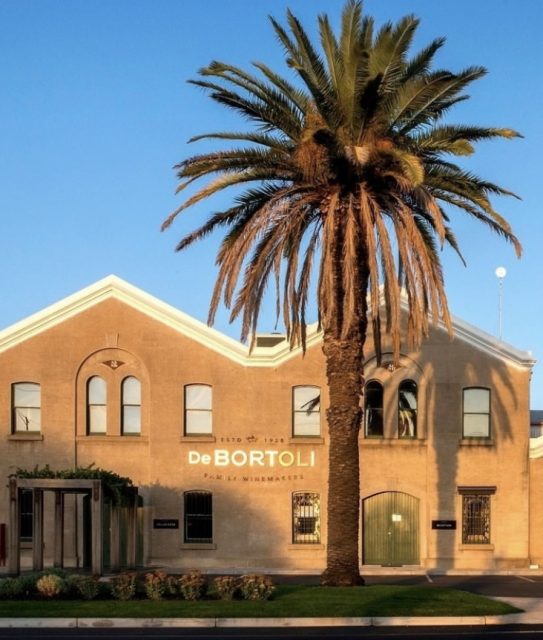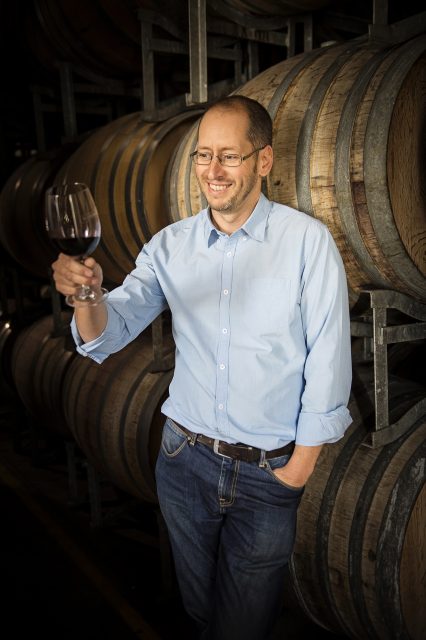This website uses cookies so that we can provide you with the best user experience possible. Cookie information is stored in your browser and performs functions such as recognising you when you return to our website and helping our team to understand which sections of the website you find most interesting and useful.
Making a Master: De Bortoli Rosé Rosé 2022
As part of db’s ‘Making a Master’ series, we delve into Australian winery De Bortoli and its Rosé Rosé wine, which won a Master medal in our Global Rosé Masters 2023.

Founded by Italian immigrants Vittorio and Giuseppina De Bortoli in the New South Wales region of Victoria in 1928, today De Bortoli Wines is a premium, family-run business with vineyards in King Valley, Yarra Valley, Hunter Valley, Riverina, Rutherglen and Heathcote.
King Valley has a fast-growing reputation for its Italian grape varieties, so it’s little surprise that the core component of De Bortoli’s Master medal-winning pink wine is Italian. Sangiovese makes up around 40% of the blend for the 2022 vintage of the producer’s twice named Rosé Rosé.
Shining amidst a blind-tasting competition which sampled rosé wines from across the globe, and at all different price points, De Bortoli Rosé Rosé bagged the top accolade of Master, judged by some of the finest palates in the world.

How to make a Master
We ask Marc Scalzo, chief winemaker of De Bortoli Wines’ Rutherglen Estate, how he crafted this exceptional pink expression.
Q: What does the use of Sangiovese bring to this rosé blend? Is 40% Sangiovese the sweet spot in the blend or will the proportions change from year to year?
A: Sangiovese is important to the blend as it adds delicate cherry notes whilst also adding a savoury character to the wine. The Sangiovese gives the red berry component without adding any greenness, which is also important. The Sangiovese grapes comes from our King Valley vineyard which has been consistent in recent years. We have no plans to change the proportions going forward.
Q: How did the 2022 vintage shape up compared with previous years for Bortoli Rosé Rosé?
A: Steve Webber developed the Rosé Rosé wine in 2018 and I’ve been making it for the last three years. 2022 was a fantastic year in the King Valley for rosé varieties. The valley has a fantastic cool climate which is ideal for making this style of savoury, approachable rosé and has become a reliable region for De Bortoli to grow rosé varieties. With its warm summers, mild autumns and cool nights, the climate and soil of our King Valley vineyard is consistently producing ideal grapes to make our Rosé Rosé wine.
Q: Rosé Rosé is a dry wine. Does this represent a departure from traditional Australian rosé styles?
A: The dryness of the wine is key to its drinkability – there is no residual sugar in our Rosé Rosé. Most traditional Australian rosé styles usually have some residual sweetness but this more modern style has a perception of sweetness from the fruit but is completely dry.
Q: Tell us about the winemaking process…
A: The grapes are all gently pressed and the juice is cold settled before racking and being fermented in stainless steel tanks. A steady cool fermentation is used to help retain the aromatics in the wine, which is then blended to maximise its soft, approachable style. The wine undergoes a percentage of malolactic fermentation to help soften the acid.
Q: What were some of the challenges or triumphs you experienced during the making of this wine. Any hurdles to overcome in the vineyard or cellar?
A: The challenge in making all rosé wines is getting the time spent on skins and the final colour absolutely right. The pale hue and gentle fruit profile is important and some sleepless nights always occur working through getting the colour spot on. It’s satisfying when we get the colour right and see customers pick the wine up off the shelf. As the vineyard is located so close to the winery it makes it easier to work with the vineyard team to organise the important logistics.
Q: Describe the terroirs in which grapes for this wine are grown. Do the grapes come from different regions, or from different vineyards within the same region?
A: The gravel and loam soil profile in the King Valley are fundamental to this wine. The majority of the fruit comes from the De Bortoli King Valley vineyard, but a small number of select growers, also based in the King Valley, are additionally used to ensure consistency of the product. The cool nights and warm days in the King Valley ensure the grapes achieve optimum ripeness levels.
Q: Do you have any plans to expand the rosé range at De Bortoli? And if so, how?
A: For sure! At De Bortoli, we have been pioneering the rosé revolution in Australia and sharing our version of a pale, dry rosé with the world. Pale rosés have gained popularity, driven by Provencal Rosé, and over the years we have developed versatile rosé styles from pale and crisp to complex, character-filled and textural by using different grape varieties. Eg. Sangiovese, Grenache, Pinot Noir and Nebbiolo. We will continue to excite our consumers with new rosé offerings.
De Bortoli Rosé Rosé 2022 (RRP: 14.99)

Patrick Schmitt MW provides his tasting notes for this Master-winning wine.
Grape varieties: 40% Sangiovese, 17% Shiraz, 26% Merlot, 13% Sauvignon Blanc and 4% Grenache
ABV: 13%
“From a mélange of seemingly incompatible grape varieties grown at high altitude in the King Valley in northeast Victoria comes this Rosé Rosé. Showing a lovely pale peach-pink colour and plenty of strawberry, cherry, apricot and peach fruit, the palate has crisp acidity, buttery texture and just a hint of tannin to balance the flavours. Stone and spice nuances accentuate the lingering finish. The wine is delicate and elegant with good underlying structure.”


